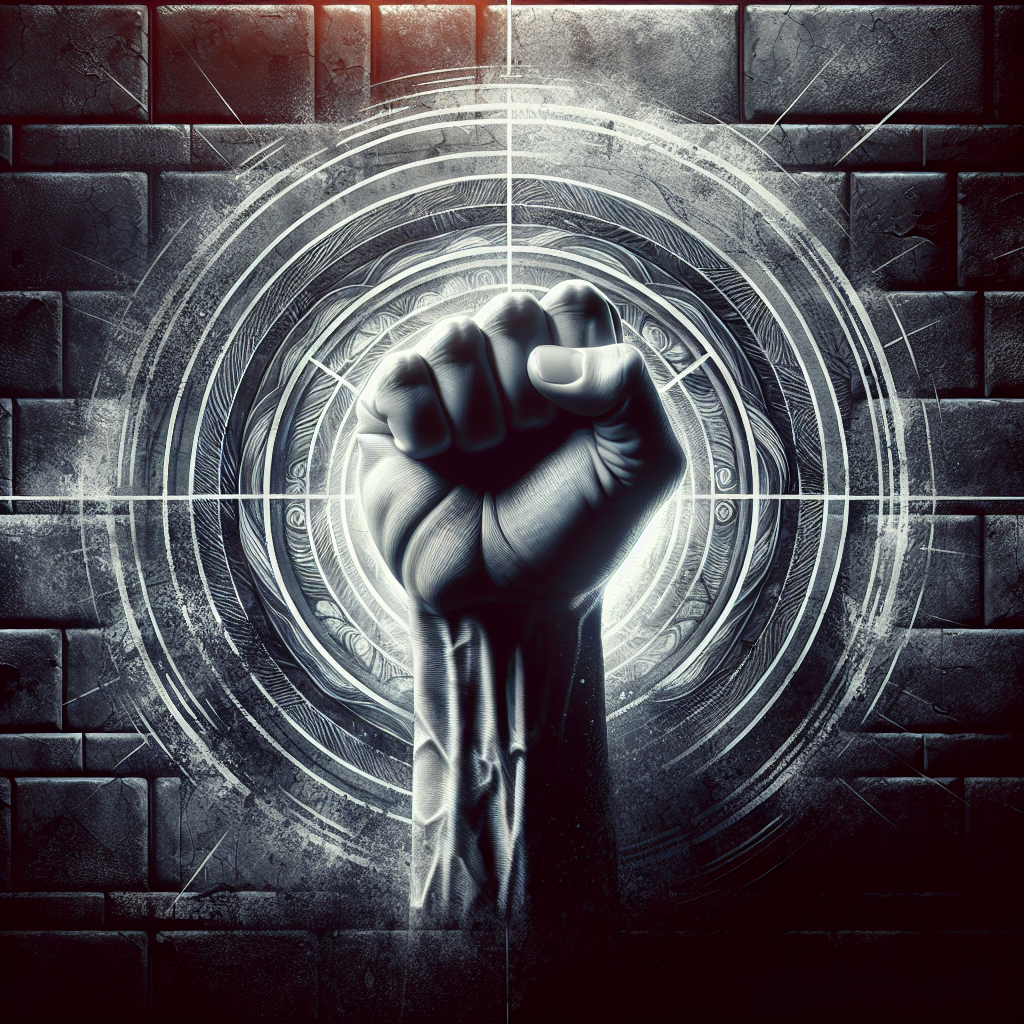In the fast-paced world we live in, being mentally resilient is essential for navigating through life’s challenges. In the realm of self-defense, having a strong mind can be just as important as physical strength. In this article, we explore the concept of developing mental resilience in self-defense and the benefits it can bring. By understanding the power of the mind and learning techniques to strengthen it, you’ll gain an invaluable tool that can help you overcome obstacles and empower yourself in potentially dangerous situations. So, take a moment to unlock the potential of your mind and discover the key to enhancing your self-defense skills.
Understanding Mental Resilience
Definition of mental resilience
Mental resilience refers to the ability to adapt and cope with challenging situations, setbacks, and stressors. It is the capacity to bounce back, learn from adversity, and maintain a positive mindset. Resilience is not about avoiding or eliminating difficulties; it’s about effectively navigating and overcoming them. Mental resilience involves a combination of emotional control, focus, adaptability, decision-making skills, and confidence.
Importance of mental resilience in self-defense
In self-defense situations, mental resilience plays a crucial role in determining the outcome. When faced with a potential threat or physical altercation, maintaining a calm and clear mindset can mean the difference between successfully defending yourself or succumbing to panic and fear. Mental resilience helps you stay composed, make effective decisions, and react appropriately under pressure. It allows you to channel your energy and focus on the task at hand, improving your chances of maintaining personal safety.
Factors that contribute to mental resilience
Mental resilience is not an innate trait; it can be developed and strengthened over time. Several factors contribute to building and enhancing mental resilience:
-
Supportive relationships: Having a strong support system consisting of family, friends, mentors, or professionals can provide emotional support, encouragement, and guidance during challenging times.
-
Positive self-beliefs: Cultivating a sense of confidence and self-efficacy fuels resilience. Believing in your abilities, resources, and strengths allows you to face adversity with determination and optimism.
-
Coping skills: Developing healthy coping mechanisms to manage stress, regulate emotions, and solve problems effectively contributes to mental resilience. These skills enable you to adapt to difficult situations and bounce back from setbacks.
-
Optimistic thinking: Maintaining a positive outlook and reframing negative experiences can enhance mental resilience. Optimism helps you find opportunities for growth and development even in the face of adversity.
-
Physical well-being: Taking care of your physical health through exercise, nutrition, and sleep positively influences mental resilience. Physical well-being provides a solid foundation for emotional and psychological strength.
Building a Strong Mindset
Recognizing and challenging negative thoughts
Building mental resilience starts with recognizing and challenging negative thoughts. Pay attention to your inner dialogue and identify any self-defeating or critical thoughts. Once identified, challenge these thoughts by questioning their accuracy and replacing them with more realistic and positive perspectives. This process of cognitive restructuring helps you develop a more resilient and empowered mindset.
Developing a positive self-talk
Positive self-talk plays a vital role in building mental resilience. Monitor your self-talk and replace negative and self-limiting statements with positive and encouraging ones. Use affirmations and supportive statements to counteract self-doubt and reinforce belief in your abilities. By cultivating a positive inner dialogue, you can enhance your mental resilience and face challenges with confidence.
Setting realistic goals
Setting realistic goals is essential for building mental resilience. Break larger tasks into smaller, more manageable goals, allowing yourself to experience tangible progress. This approach helps prevent overwhelm and fosters a sense of accomplishment, boosting your confidence and resilience along the way. Remember to set goals that are within your control and align with your personal values.
Practicing visualization techniques
Visualization is a powerful tool for mental resilience. Take the time to visualize yourself successfully navigating challenging situations. Imagine yourself responding calmly, making sound decisions, and achieving your desired outcomes. Visualization enhances focus, confidence, and mental preparation, making it an effective technique for building resilience in self-defense scenarios.
Emotional Control and Self-Regulation
Identifying and managing emotions
Developing emotional control and self-regulation is vital for mental resilience in self-defense. Start by increasing your self-awareness and acknowledging your emotions. Identify how certain situations or events trigger specific emotional responses, such as fear, anger, or anxiety. Once identified, practice managing these emotions through techniques like deep breathing, mindfulness, and grounding exercises.
Strategies for coping with fear and anxiety
Fear and anxiety are common emotions in self-defense situations. To cope with these emotions, first, recognize and accept them as normal reactions. Then, focus on regulating your breathing to calm your nervous system. Challenge irrational thoughts that may be fueling fear or anxiety and replace them with more rational and empowering beliefs. Utilize relaxation techniques, such as progressive muscle relaxation or guided imagery, to reduce tension and promote a sense of calm.
Utilizing relaxation techniques
Relaxation techniques are valuable tools for promoting emotional control and self-regulation. Techniques such as deep breathing, progressive muscle relaxation, and visualization help reduce stress, anxiety, and physical tension. Regularly practicing these techniques can enhance your ability to stay calm and composed during self-defense situations, enhancing your mental resilience.
Breathing exercises for emotional regulation
Breathing exercises are especially effective in regulating emotions and promoting relaxation. Deep breathing exercises, such as diaphragmatic breathing or box breathing, activate the body’s relaxation response and help regulate heart rate and blood pressure. Learning and practicing these techniques can provide you with a readily accessible tool for emotional regulation in stressful situations.
Focus and Concentration
Improving focus through mindfulness
Mindfulness is the practice of being fully present and aware of the present moment. By training your mind to focus on the here and now, you can improve your concentration and enhance mental resilience. Engage in mindfulness exercises, such as mindful breathing or body scans, to develop your ability to maintain focus and stay grounded in high-stress situations.
Enhancing concentration skills
Concentration is crucial in self-defense scenarios, allowing you to effectively assess threats, formulate strategies, and execute responses. Enhance your concentration skills by practicing activities that require sustained focus, such as meditation, reading, or puzzle-solving. By regularly challenging and honing your ability to concentrate, you can improve your mental resilience in self-defense situations.
Techniques for staying present in high-stress situations
Staying present and focused during high-stress situations is essential for making quick and informed decisions. One technique for staying present is to mentally anchor yourself in the present moment by paying attention to your physical sensations, such as the feeling of your feet on the ground or the movement of your breath. Additionally, practice maintaining an external focus by observing your environment and potential threats rather than becoming internally preoccupied.
Utilizing mental imagery for enhanced focus
Mental imagery, also known as visualization, can help enhance focus and mental resilience. Visualize yourself successfully performing specific self-defense techniques and scenarios. Engage all your senses to create a vivid mental representation of the situation. By repeatedly visualizing successful outcomes, you enhance your ability to stay focused and perform effectively in actual self-defense situations.
Adapting to Change and Uncertainty
Developing flexibility in thinking
Flexibility in thinking is crucial for adapting to change and uncertainty. Challenge rigid or fixed beliefs and be open to alternative perspectives and solutions. Embrace the idea that change is a natural part of life and view challenges as opportunities for growth and learning. By cultivating flexibility in your thinking, you can better navigate unexpected situations and strengthen your mental resilience.
Embracing the unknown
Life is inherently unpredictable, and embracing the unknown is a key aspect of mental resilience. Rather than fearing or avoiding uncertainty, approach it with curiosity and an open mind. Embracing the unknown allows you to remain adaptable and resourceful, even in the face of unfamiliar or challenging circumstances.
Strategies for dealing with unexpected situations
Unexpected situations can test your mental resilience, especially in self-defense scenarios. To effectively deal with the unexpected, practice mental preparedness and problem-solving skills. Develop contingency plans for potential threats and train yourself to think quickly and adaptively. Stay calm, trust your abilities, and utilize the skills and techniques you have learned to navigate unfamiliar situations.
Building resilience through exposure therapy
Exposure therapy involves gradually and systematically exposing yourself to feared or uncomfortable situations, allowing you to develop resilience and overcome anxiety or fear. In the context of self-defense, exposure therapy may involve gradually exposing yourself to simulated threatening situations, progressively increasing the intensity. This exposure helps desensitize you to fearful stimuli and builds mental resilience in the face of potential danger.
Developing Decision-Making Skills
Analyzing risks and potential threats
Developing effective decision-making skills is crucial for mental resilience in self-defense. Start by analyzing risks and potential threats in different scenarios. Understand the factors that contribute to danger and evaluate the likelihood and severity of potential outcomes. By becoming skilled at risk analysis, you can make informed decisions and take appropriate action in self-defense situations.
Making quick and effective decisions
Self-defense situations often require making quick decisions in high-pressure environments. To develop this skill, practice decision-making exercises that simulate time constraints and stress. Train yourself to assess situations rapidly, consider available options, and make decisive choices based on the information at hand. Regular practice will enhance your ability to make quick and effective decisions in self-defense scenarios.
Recognizing and managing cognitive biases
Cognitive biases are common patterns of thinking that can adversely impact decision-making. By developing awareness of these biases, you can mitigate their influence on your choices. Recognize and challenge biases such as confirmation bias, where you gravitate towards evidence that supports your pre-existing beliefs, and availability bias, where you rely on easily accessible information rather than a comprehensive analysis. Developing and practicing critical thinking skills can help you make more objective and effective decisions.
Utilizing problem-solving techniques
Problem-solving skills are vital for mental resilience in self-defense. Develop a systematic approach to problem-solving that involves identifying the problem, generating possible solutions, weighing their potential effectiveness, and implementing the chosen solution. Regularly engage in problem-solving exercises to enhance your ability to think critically and make effective decisions when faced with unexpected challenges.
Overcoming Setbacks and Failure
Learning from failures and mistakes
Setbacks and failures are inevitable in life and self-defense situations. Instead of viewing them as defeats, embrace failures as opportunities for growth and learning. Analyze your mistakes and setbacks, identifying the lessons they offer. By adopting a growth mindset, you can maximize the value of failures and use them to build mental resilience and refine your self-defense strategies.
Accepting and processing setbacks
Accepting setbacks and taking the time to process them is an essential step in building mental resilience. Allow yourself to experience and acknowledge the emotions that arise from setbacks, such as disappointment or frustration. Take the time to reflect on the experience, identify any lessons learned, and consider adjustments that can be made moving forward. By accepting and processing setbacks, you develop emotional resilience and the ability to bounce back stronger.
Developing a growth mindset
A growth mindset is the belief that abilities and intelligence can be developed through effort, practice, and learning. Embrace challenges, persevere in the face of obstacles, and view failure as an opportunity for growth rather than a reflection of your worth or potential. Cultivating a growth mindset enhances your mental resilience, enabling you to approach self-defense situations with curiosity, determination, and a focus on continuous improvement.
Building resilience through perseverance
Perseverance plays a significant role in building mental resilience. Even in the face of setbacks or challenges, maintain your determination and commitment to your self-defense goals. Embrace the mindset that obstacles are temporary and view perseverance as an integral part of the journey towards building mental resilience. By persisting in the face of adversity, you build resilience, inner strength, and a belief in your ability to overcome obstacles.
Building Confidence and Self-Efficacy
Recognizing and capitalizing on strengths
Building mental resilience involves recognizing and capitalizing on your strengths. Identify your unique skills, qualities, and experiences that contribute to your self-defense capabilities. By acknowledging your strengths, you can cultivate confidence and self-belief, enhancing your mental resilience. Leverage your strengths to develop effective strategies and techniques that align with your personal abilities.
Setting achievable challenges
Setting achievable challenges is crucial for building confidence and self-efficacy. Gradually increase the difficulty and complexity of tasks, ensuring they remain within your capabilities. Setting attainable goals provides opportunities for success and reinforces your belief in your abilities. As you consistently achieve your challenges, your confidence and mental resilience grow, enabling you to face more significant self-defense scenarios.
Utilizing positive affirmations
Positive affirmations are statements that reinforce positive beliefs and qualities. Use positive affirmations to counteract self-doubt or negative self-talk. Repeat affirmations such as “I am capable and resilient” or “I have the skills to protect myself” to cultivate a strong and confident mindset. Regularly using positive affirmations can boost your self-efficacy, enhancing mental resilience in self-defense situations.
Learning from past successes
Reflecting on past successes is a valuable tool for building confidence and mental resilience. Recall moments when you successfully navigated challenging situations or accomplished self-defense goals. Celebrate these achievements and use them as evidence of your capabilities. By recognizing your past successes, you build a foundation of confidence and resilience that bolsters your ability to handle future self-defense challenges.
Utilizing Mental Preparation Techniques
Creating mental rehearsal routines
Mental rehearsal involves mentally visualizing and rehearsing self-defense techniques and scenarios before they occur. Create a routine that incorporates regular mental rehearsals, envisioning potential threats and your desired responses. Visualize yourself executing techniques with precision and maintaining composure. By mentally rehearsing, you enhance your readiness and mental resilience in self-defense situations.
Implementing pre-performance rituals
Pre-performance rituals are specific actions or habits that help you mentally prepare for self-defense situations. These rituals can include physical warm-up exercises, deep breathing techniques, or listening to specific music. Implementing pre-performance rituals helps create a sense of familiarity and comfort, reducing anxiety and boosting mental resilience when faced with self-defense scenarios.
Utilizing positive visualization
Positive visualization involves imagining successful outcomes and positive experiences. Envision yourself confidently and effectively defending yourself in various scenarios. Visualize desired results, such as maintaining personal safety and successfully neutralizing threats. Positive visualization enhances belief in your abilities and primes your mind for success, contributing to mental resilience in self-defense situations.
Developing a pre-fight routine
A pre-fight routine is a set of actions and rituals that prepare you mentally and physically for self-defense encounters. This routine may include elements such as stretching exercises, mental focus techniques, or reviewing your self-defense strategies. By developing and consistently practicing a pre-fight routine, you create a sense of structure and readiness, enhancing your mental resilience and performance in self-defense scenarios.
Seeking Professional Support
Benefits of seeking professional help
Seeking professional support can be instrumental in building and enhancing mental resilience, particularly in self-defense. Mental performance coaches, therapists, or counselors offer specialized guidance and strategies tailored to your individual needs. They provide insight, facilitate personal growth, and help you develop effective coping mechanisms and skills to navigate self-defense situations with confidence and resilience.
Counseling and therapy for mental resilience
Counseling and therapy provide a supportive and confidential space to explore and address any underlying emotional or psychological factors that may impact your mental resilience. Therapists can help you develop strategies to manage fear, anxiety, or trauma related to self-defense situations. Counseling and therapy interventions, such as cognitive-behavioral therapy (CBT) or eye movement desensitization and reprocessing (EMDR), assist in building resilience and enhancing emotional well-being.
Group support and community involvement
Engaging in group support or community involvement can foster mental resilience in self-defense. Connecting with others who share similar experiences or goals provides a sense of belonging, support, and perspective. Group activities such as self-defense classes, support groups, or community events create opportunities for learning, sharing, and building a network of support, further enhancing mental resilience.
Collaborating with mental performance coaches
Mental performance coaches specialize in helping individuals enhance their mental skills and resilience in various domains, including self-defense. These professionals provide personalized guidance and techniques to optimize mental performance, cope with stress, and develop strategies for self-improvement. Collaborating with a mental performance coach can significantly enhance your mental resilience and overall self-defense capabilities.
In conclusion, developing mental resilience is vital for effectively navigating self-defense situations. By understanding the definition of mental resilience, recognizing its importance in self-defense, and exploring the factors that contribute to it, you can begin building a strong mindset. By focusing on emotional control, developing concentration skills, adapting to change, improving decision-making abilities, overcoming setbacks, building confidence, utilizing mental preparation techniques, and seeking professional support, you can enhance your mental resilience in self-defense. Through consistent practice and a commitment to personal growth, you can cultivate a resilient mindset that empowers you to protect yourself and thrive in challenging situations.









